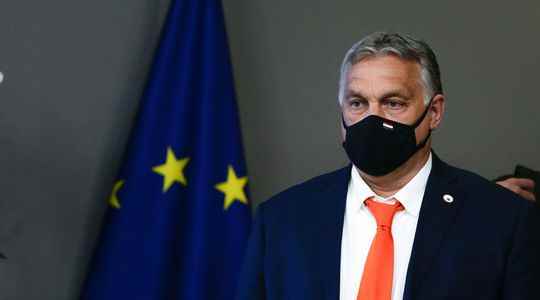Ursula von der Leyen did not wait long before triggering a massive response. Only two days after the overwhelming re-election of Prime Minister Viktor Orban in Hungary, on April 3, the President of the European Commission announced the activation of a conditionality mechanism, aimed at blocking the payment of European aid against a Member State violating Right wing state. This legislative weapon, used for the first time, could deprive Hungary of 40 billion euros in subsidies.
Six to nine months will be necessary for the implementation of this system, which will then have to be validated by the qualified majority of 15 of the 27 Member States, representing 65% of the European population. The European Union (EU) singles out Budapest for its judicial system, its imbalance of powers, the fraudulent awarding of public contracts and its insufficient fight against corruption.
Budapest risks increasing its international isolation
On Tuesday 12 April, ministers from twenty-seven European countries met in Luxembourg to discuss the situation of the rule of law in five member countries, including Hungary. The Hungarian Minister of Justice, Judit Varga, affirmed that her fellow citizens did not share the concerns of the European Commission, as the imposing majority given to the Orban government would have proved.
“We are delighted to respond to these concerns, but refuse double standards and stigma,” tackles the Hungarian minister. “In these difficult times, when a war is taking place at the gates of Hungary, we must show unity, solidarity and solidity between European partners, continues Judit Varga. We should focus on the subjects which bring us together rather than those which sink corners between us.”
On the evening of his triumph, Orban exhausted the “bureaucrats of Brussels”, the favorite punching bag of the sovereignist leader since he returned to power twelve years ago. The conflict between the EU and Budapest began in 2011, when the first Orban government passed its controversial media legislation, just before an ultra-conservative reform of the Constitution in January 2012.
Since the adoption by the European Parliament of a resolution inviting the Council of the EU, in September 2018, to note “the existence of a clear risk of a serious breach by Hungary of the values on which the Union is founded “, this country is under the influence of a procedure likely to deprive Budapest of its right to vote in the European Council. Fidesz’s break with the European People’s Party, recorded in March 2021, further marginalized Orban’s stable in Brussels.
“If the continental policy of Fidesz does not change, the Hungarian government will accentuate its international isolation, while facing the possibility of a loss of European resources, analyzes journalist Laszlo Arato, correspondent for the magazine LVH in Brussels. Despite its domestic successes, Fidesz has become a particularly undesirable partner. Orban’s ‘peacock dance’ between East and West will surely occupy European debates for a long time.”
A divorce from conservative Poland
For a long time, Hungary was able to count on Poland to fight the mechanism on respect for the rule of law by its side. But since the war in Ukraine, Warsaw has moved away from Budapest, which refuses any energy sanctions against Russia and the sending of arms to kyiv. During his victory speech on April 3, Orban thus ranked President Zelensky among his adversaries.
Unlike the other Member States, Hungary has accepted to pay for his Russian gas in rubles, as requested by Vladimir Putin. Budapest, which is 85% dependent on Russian energy, advocates cautious neutrality with Moscow in order to maintain cheap access to its hydrocarbons. An argument that facilitated the re-election of the Prime Minister…
“Viktor Orban’s strategy of opening up to the East has become a failure and the deterioration of his relations with the Polish government, his most important ally, shows that it will be impossible for him to recover if he maintains his position on Russia, considers the political scientist Andras Biro-Nagy, director of the think-tank Policy Solutions. The international reputation of the Hungarian leader risks suffering lasting damage from his government’s approach to the war in Ukraine.”
Never mind, Hungary has not finished facing Brussels. Orban threatens to block the 2050 carbon neutrality objective, a green transition project which he believes would encourage higher energy prices. Budapest refuses the European pact on migration and asylum, while the plan meets the wishes of Fidesz. Finally, the Hungarian executive rejects the potential cooperation agreement over twenty years with the countries of Africa, the Caribbean and the Pacific (ACP), considering that it feeds illegal immigration.
